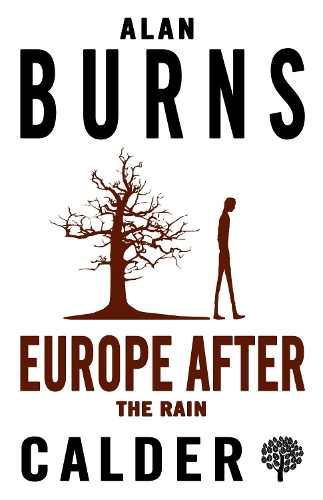
Europe after the Rain
(Paperback)
Publishing Details
Europe after the Rain
By (Author) Alan Burns
Alma Books Ltd
Calder Publications Ltd
5th November 2019
25th July 2019
United Kingdom
Classifications
Physical Properties
Paperback
160
Width 134mm, Height 204mm, Spine 20mm
160g
Description
Europe after the Rain takes its title from Max Ernsts surrealist work, which depicts a vision of rampant destruction a theme which Burns here takes to its conclusion, showing man not merely trying to come to terms with desolation, but combating human cruelty with that resilience of spirit without which survival would be impossible. The Europe through which the unnamed narrator travels is a devastated world, twisted and misshapen, both geographically and morally, and he is forced to witness terrible sights, to which he brings an interested apathy, without ever succumbing to despair or cynicism.
Upon the novels first publication, Burns was heralded as presenting a picture of his age and capturing the collective unconscious of the twentieth century in a language that can have few rivals for economy, beauty and rhythm. His austere sentences glow with intelligence, colour and force, and evoke a powerful image for the modern reader of fears every bit as relevant today as on the day when they were written.
Reviews
A writer of real originality and horrifying imaginative power, a writer to be watched, a writer to be read the whole effect being bare, clipped, stripped, staccato, superbly abrupt. I got the impression of a colossal book, another War and Peace, boiled down and boiled down until only the bones, the essence, the heart remain This is a nerve-wracking book, ghoulishly successful in touching the reader where it hurts. * The Scotsman *
Everyone interested in literary experiment should read Europe after the Rain. It is unique. * Financial Times *
His experiment works, and out of his brazen chaos emerges a still small human voice. * Irish Times *
Alan Burnss novels deserve the attention of serious readers. -- David W. Madden
I always liked Europe after the Rain because of its originality and the way the author successfully shifts the reality of his narrative in the way a dream does, from page to page. -- John Calder, in Pursuit
One of the two or three most interesting new novelists working in England. -- Angus Wilson
Author Bio
A trained lawyer, Alan Burns (19292013) became a celebrated novelist and playwright, loosely associated with the 1960s British experimental circle of writers led by B.S. Johnson. He is best known for Europe after the Rain (1965), Celebrations (1967), Babel (1969) and Dreamerika! (1972).
